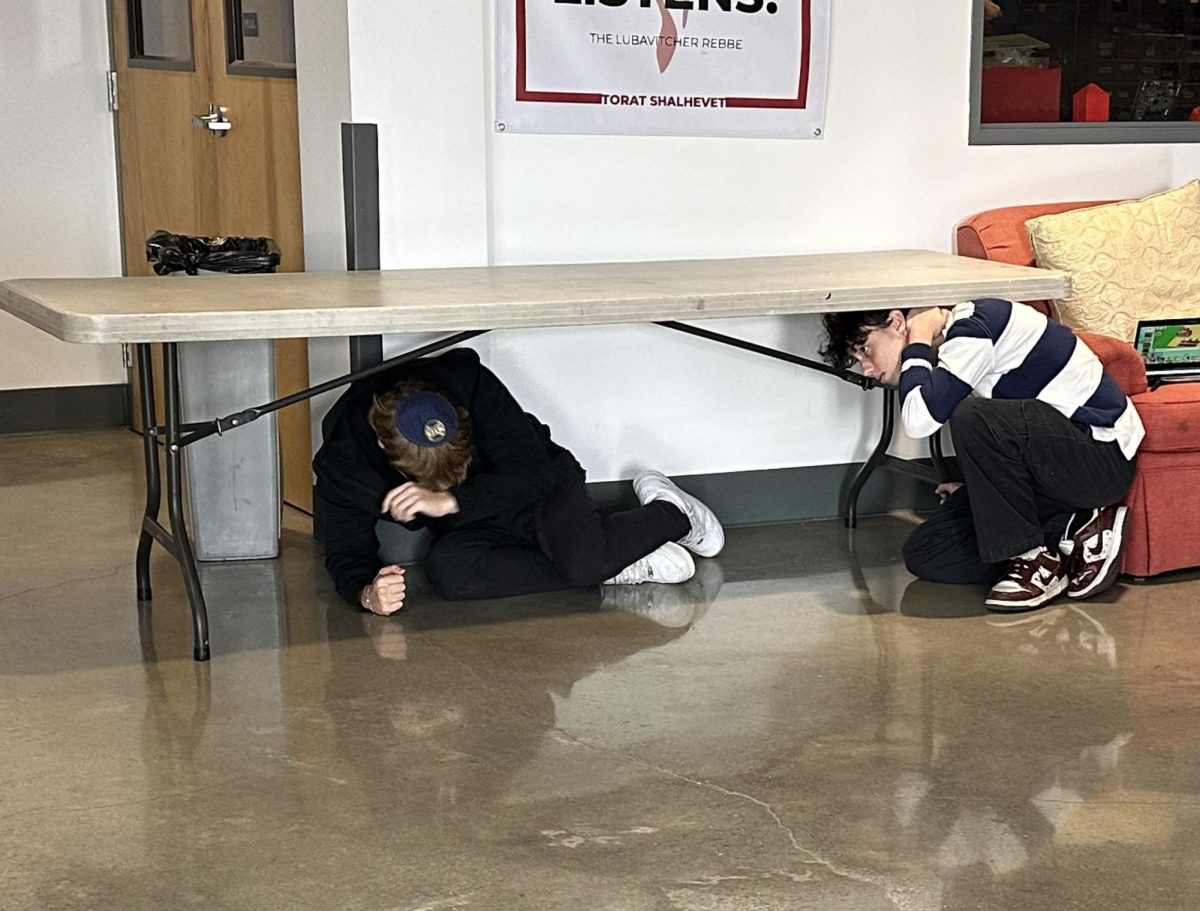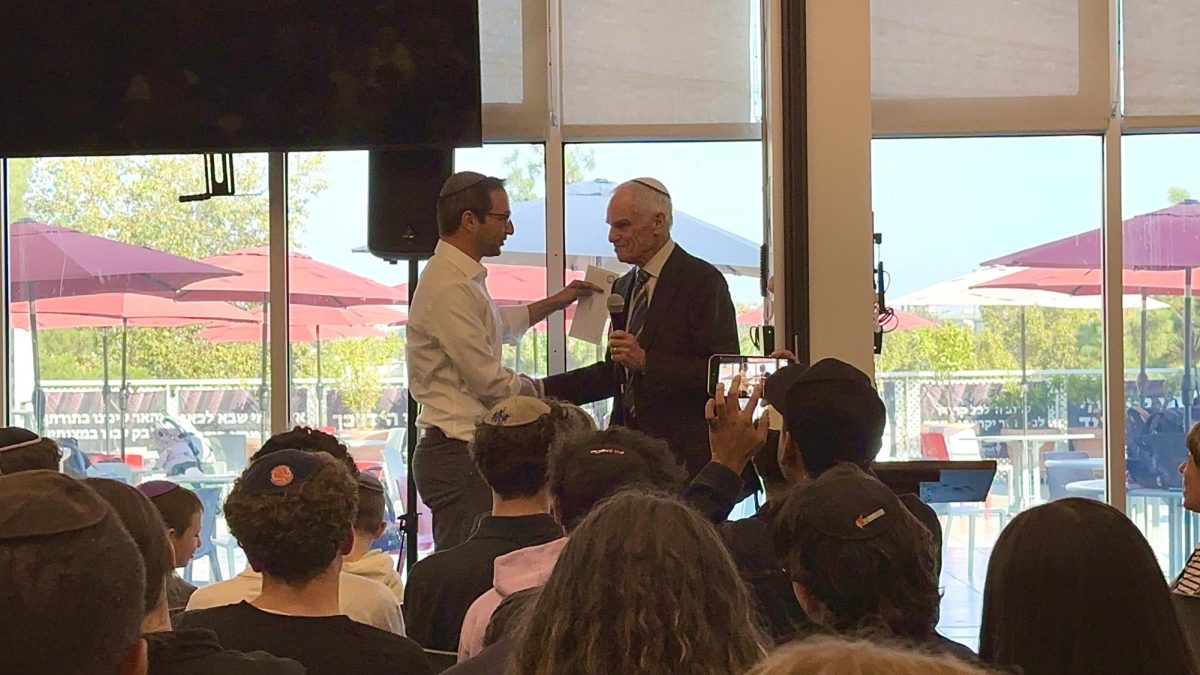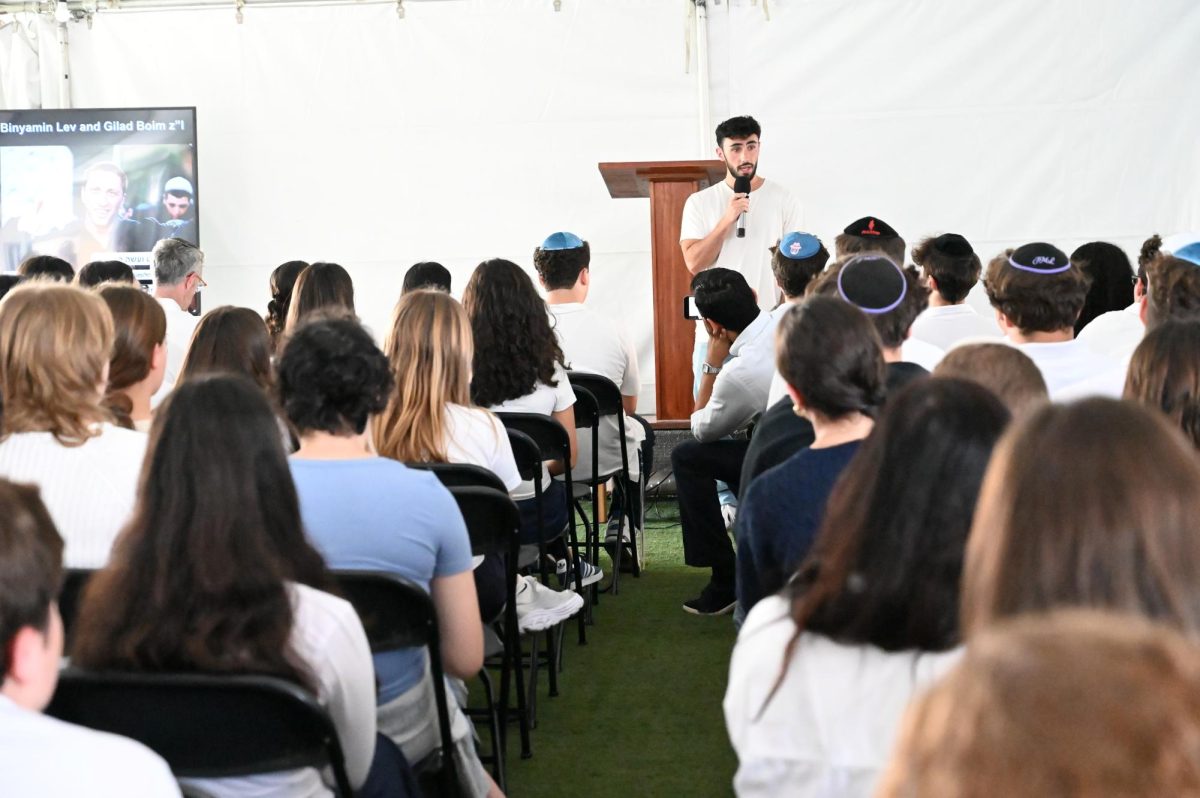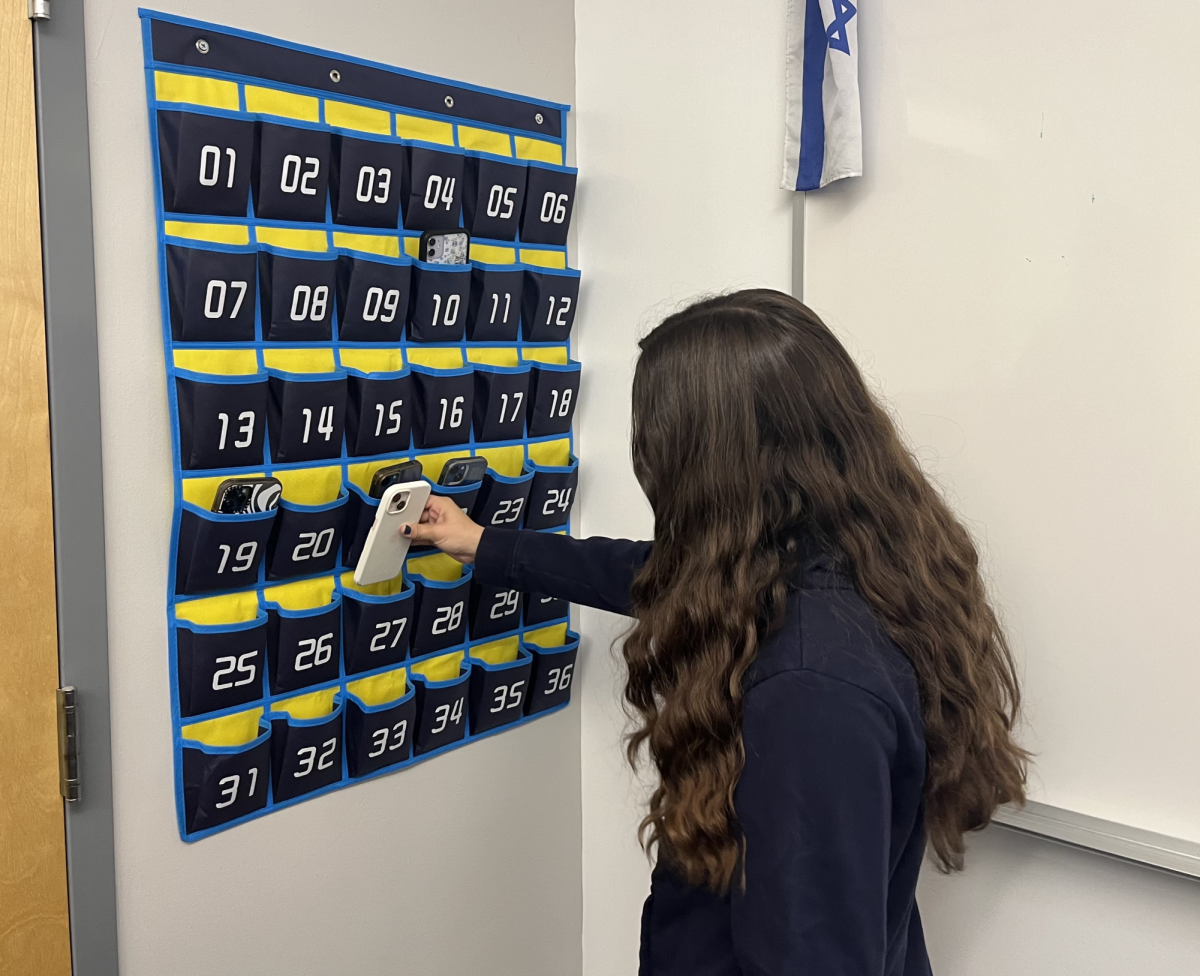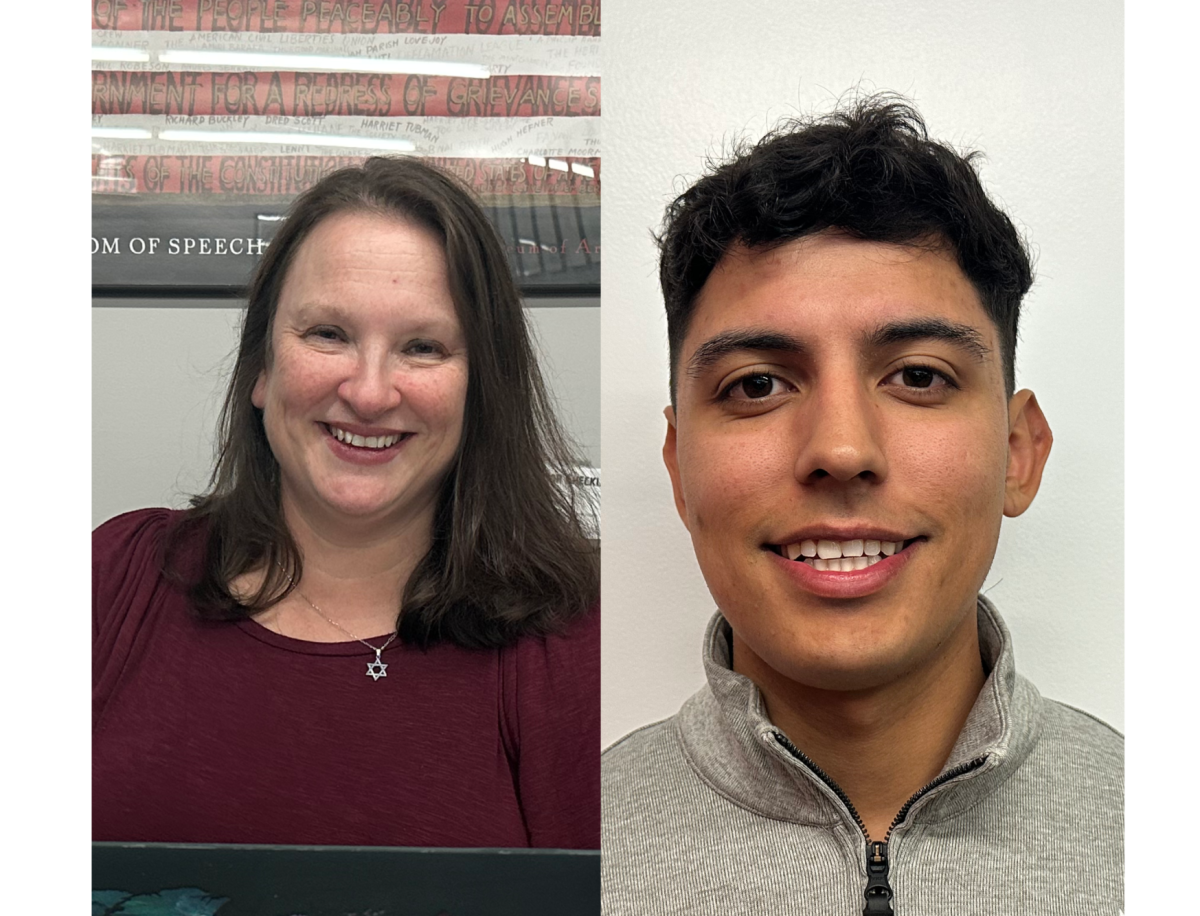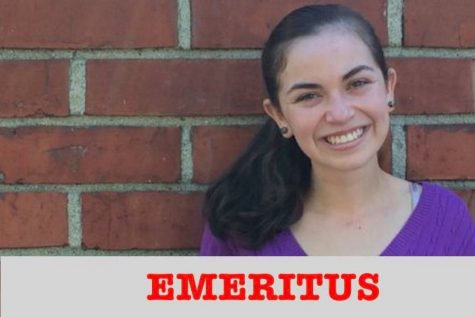For the first time in 10 years, Shalhevet’s debate team returned from the Yeshiva University Model United Nations (YUNMUN) in Stamford, Conn., last month without any awards.
Math and science teacher Mr. Christopher Buckley, who coaches the team, offered many reasons for the defeat, which contrasted sharply with best-ever achievements in both Model Congress and Mock Trial this year.
“It was my first year coaching the team, since I previously only coached Model Congress, and we didn’t have as much practice time as we needed,” Mr. Buckley said.
But the biggest reason may have been something that had nothing to do with coaching, practice time or the ability of Firehawk debaters. Yeshiva University sets the size of each team according to a formula that puts some schools, including Shalhevet, at a disadvantage by reducing the size of their teams.
According to Mr. Buckley, the size of the delegation corresponds to how well a team did previously, and the number of alumni that its sponsoring high school sent to YU. Last year, Shalhevet sent one alumna to YU’s women’s campus, Stern College, and the team won two awards at YUNMUN.
Eight Shalhevet delegates were allowed to compete this year, compared to 16 in 2006 and 10 last year, and 18 on this year’s YULA team. New York’s Yeshiva of Flatbush, which won the conference this year for the first time, brought 15 delegates to the competition.
“We were a lot smaller than the other teams,” said Mr. Buckley.
He said if it had been allowed, Shalhevet would have brought many more debaters. About 25 more students tried out for the team than were accepted, he said.
As it was, Firehawk debaters had half as many chances to win as the schools that won.
About 40 Jewish schools from around the U.S. competed against each other in committee sessions varying between an hour and two-and-a-half hours each over a three day period. The eight Shalhevet team members traveled to Stamford, Connecticut Feb. 2, accompanied by Mr. Buckley and Acting General Studies Principal Roy Danovitch.
In an apparent “Catch 22” situation, the Shalhevet delegation can’t win because it’s so small, but it can’t get bigger because the size of the team is partly based on how much it wins.
More specific details of the formula governing team size are unclear, and Boiling Point efforts to get more details were not successful.
Asked to explain the formula and comment on the problem, YU spokesman Marc Zharnest said to ask Mr. Buckley, and said the team’s previous advisors, English teacher Melanie Berkey and former General Studies Principal Phu Tranchi, understood them well.
“We make it very clear to the school and your faculty advisors how we allocate delegates,” Mr. Zharnest wrote in an email.
Mr. Buckley responded that he still doesn’t understand the exact formula.
“YU sends a letter explaining that a delegation size is based on current students at YU and past performance at the conference,” Mr. Buckley said. “They also sent a follow-up email later mentioning that ‘behavior’ of students at the conference and adherence to deadlines would also be taken into consideration. They do not, however, make it known what the exact formula they use to determine how many delegates each school gets.”
Mrs. Berkey agreed, saying that she knows the basic idea of the formula from previous years, but not exactly how it works.
“It was made known to me that the delegation size is based off of a point system,” Ms. Berkey said. “Each award had a certain number of points. The team’s total points divided by the number of team members would determine the number of delegates. I do not know how many points each award was, or how many points correspond to one delegate.”
“They do not .. make it known what the exact formula they use to determine how many delegates each school gets.”
Junior Daniel Schwartz, captain of this year’s team, said he enjoyed the experience but was upset about the lack of awards.
“It was great being captain and spending time with fellow students, but YU really needs to learn about conflict of interest,” said Daniel.
In addition to the overall problem of favoring schools who send more alumni to YU, Daniel said YU committee “chairs”— students who choose the winners —were not chosen with objectivity in mind.
“One chair in my committee was related to a student,” Daniel said, “and that student won.”
The 25-student delegation at this year’s Princeton Model Congress won 25 awards under Mr. Buckley’s leadership.
Still, Head of School Rabbi Ari Segal said it was worth continuing to send a team to YUNMUN even if the odds are stacked against it.
“It isn’t just about awards, but the journey and experience,” said Rabbi Segal. “Our students get to interact with other teens, and they learn how to use their talents..
Mr. Buckley also believes that it is harder to win at YUNMUN than at Model Congress because of things about the conference.
“Because the committee sizes are much larger, the probability of winning is smaller,” said Mr. Buckley.“Even though both are debate, the format is different, which is why it was hard my first time around.”
Also, the team tried to practice once a week this year, but missed practice often because of holidays and conflicts, as opposed to once every week last year. That was partly because Mr. Buckley had to share his time equally between the Model UN and Model Congress teams and couldn’t give as much attention as he would have liked to either team.
At the conference, students were judged on three different areas: public speaking, caucus, and the ability to collaborate with others. Students on the YUNMUN delegation could win one of three available awards.
Shalhevet students represented Poland and France in areas such as Security, Finance or Legal Affairs, just like in the actual United Nations. Delegates were told to represent their country’s best interests, whether the students agreed with the country’s political views or not.
Since the committees were composed of as many as 100 students, there was fierce competition to win an award.
Students flew into Stamford Thursday night so they’d be ready to compete Sunday morning. Over Shabbat, some were allowed to stay with family in the area, while others relaxed at the Stamford Plaza Hotel, explored the city and met other debaters.
“My favorite part of the conference wasn’t the debating, but meeting new people,” said Jennie.
Daniel Schwartz thinks next year will be better.
“I’m planning to work really hard, and hopefully achieve our team’s goals,” said Daniel. “Even if we don’t win, it’s worth going for the chance to compete and debate.”


